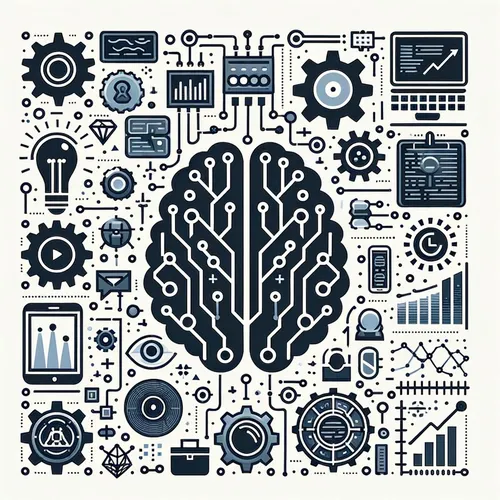AI's Meteoric Rise: Skyrocketing Adoption, Staggering ROI, and a Glimpse into the Future
- Author
- Quiet. Please
- Published
- Fri 22 Aug 2025
- Episode Link
- https://www.spreaker.com/episode/ai-s-meteoric-rise-skyrocketing-adoption-staggering-roi-and-a-glimpse-into-the-future--67475722
This is you Applied AI Daily: Machine Learning & Business Applications podcast.
Welcome to Applied AI Daily, where machine learning is more than just hype and delivers results shaping today’s industries. In 2025, AI implementation is reaching unparalleled levels, with 78 percent of companies worldwide now adopting AI in at least one business function and 45 percent applying it across three or more areas, according to Radixweb. The market is responding, ballooning to over 113 billion dollars this year and projecting an annual growth of nearly 35 percent based on Itransition’s figures.
Real-world use cases underscore this momentum. In healthcare, IBM Watson Health is transforming patient care by employing natural language processing to analyze complex medical records and suggest tailored treatment plans, leading to more accurate diagnoses and efficient healthcare delivery. On the business front, BGIS, an energy firm in Canada, used natural language processing to analyze thousands of work orders, quantifying the return on investment in a lighting retrofit project and driving significant cost savings, as chronicled by AIMultiple.
Integrating machine learning into existing business frameworks is more attainable with cloud services. Google Cloud currently offers nearly 200 software-as-a-service and API machine learning solutions on its marketplace, empowering organizations with scalable tools for prediction and automation. Companies like Toyota, highlighted by Google Cloud, are deploying AI-driven models directly onto factory floors, empowering workers to optimize processes without needing advanced technical backgrounds.
When it comes to performance metrics and return on investment, the numbers are compelling. Zip, an Australian fintech company, achieved an ROI of over 470 percent by automating customer support with AI, slashing response times and freeing staff for tasks requiring human expertise. AI-driven fraud detection and customer service chatbots also dominate sectors like telecommunications, where 74 percent of organizations use chatbots to drive productivity, as reported by Exploding Topics. In financial services, integration with core processes accelerates client onboarding and cuts costs, with Zenpli’s AI solution reducing onboarding time by 90 percent and halving operational expenses.
Implementing AI is not without its hurdles. Key challenges include integrating new systems with legacy infrastructure, ensuring data quality, and managing privacy concerns. Solutions often involve staged rollouts, robust change management, and leveraging explainable AI platforms to foster trust and transparency among stakeholders. Technical requirements continue to demand strong data pipelines, cloud architectures, and industry-specific customization—especially as predictive analytics, computer vision, and natural language processing mature and proliferate.
For action, listeners should prioritize identifying high-impact processes for automation, invest in robust data management practices, and consider partnering with AI vendors offering industry expertise. Executives are advised to track key metrics like reduction in manual processing time, error rate decreases, and upswings in customer satisfaction for meaningful ROI measurement.
Looking ahead, AI’s trajectory suggests profound changes not just in efficiency but also in the kinds of problems businesses can solve—from custom healthcare diagnostics to adaptive logistics. New trends point to even greater personalization, ethical and explainable AI requirements, and cross-industry AI collaboration. With global investments nearing 200 billion dollars in 2025 and the workforce in AI-related roles climbing to almost 100 million, the landscape is evolving fast.
Thank you for tuning in to Applied AI Daily. Come back next week for the latest developments in machine learning and business innovation. This has...
